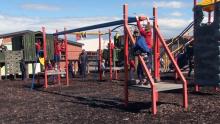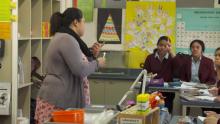Teaching approaches and strategies that work
This evaluation looks at teaching approaches and strategies used in schools where there has been a significant increase in the number of students at or above National Standards in the upper primary school years (Years 5 to 8). We wanted to learn more about any short-term interventions or long-term strategies that may have been influential in bringing about these positive achievement trajectories. We have shared and discussed our findings from some of the 40 schools we visited.






